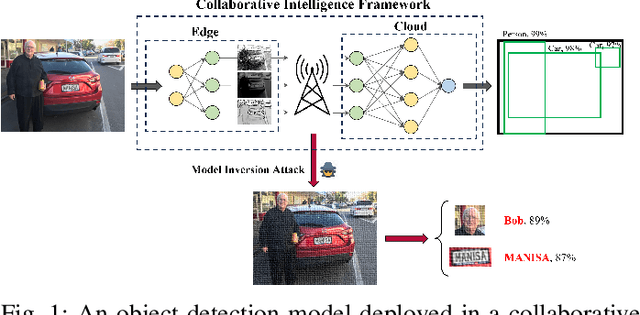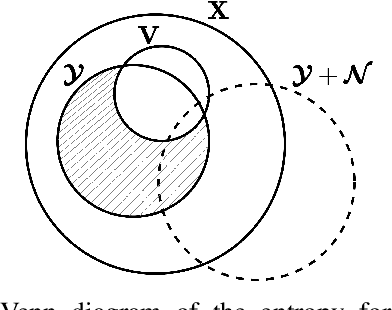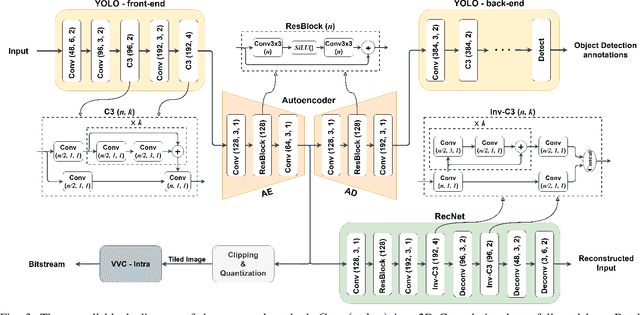Privacy-Preserving Autoencoder for Collaborative Object Detection
Paper and Code
Feb 29, 2024



Privacy is a crucial concern in collaborative machine vision where a part of a Deep Neural Network (DNN) model runs on the edge, and the rest is executed on the cloud. In such applications, the machine vision model does not need the exact visual content to perform its task. Taking advantage of this potential, private information could be removed from the data insofar as it does not significantly impair the accuracy of the machine vision system. In this paper, we present an autoencoder-style network integrated within an object detection pipeline, which generates a latent representation of the input image that preserves task-relevant information while removing private information. Our approach employs an adversarial training strategy that not only removes private information from the bottleneck of the autoencoder but also promotes improved compression efficiency for feature channels coded by conventional codecs like VVC-Intra. We assess the proposed system using a realistic evaluation framework for privacy, directly measuring face and license plate recognition accuracy. Experimental results show that our proposed method is able to reduce the bitrate significantly at the same object detection accuracy compared to coding the input images directly, while keeping the face and license plate recognition accuracy on the images recovered from the bottleneck features low, implying strong privacy protection.
 Add to Chrome
Add to Chrome Add to Firefox
Add to Firefox Add to Edge
Add to Edge